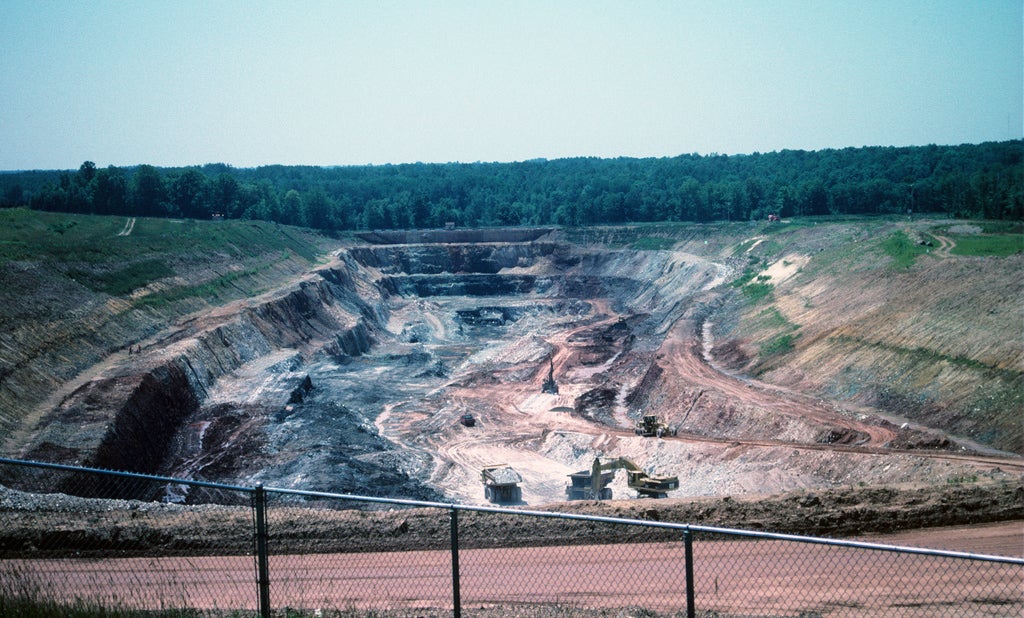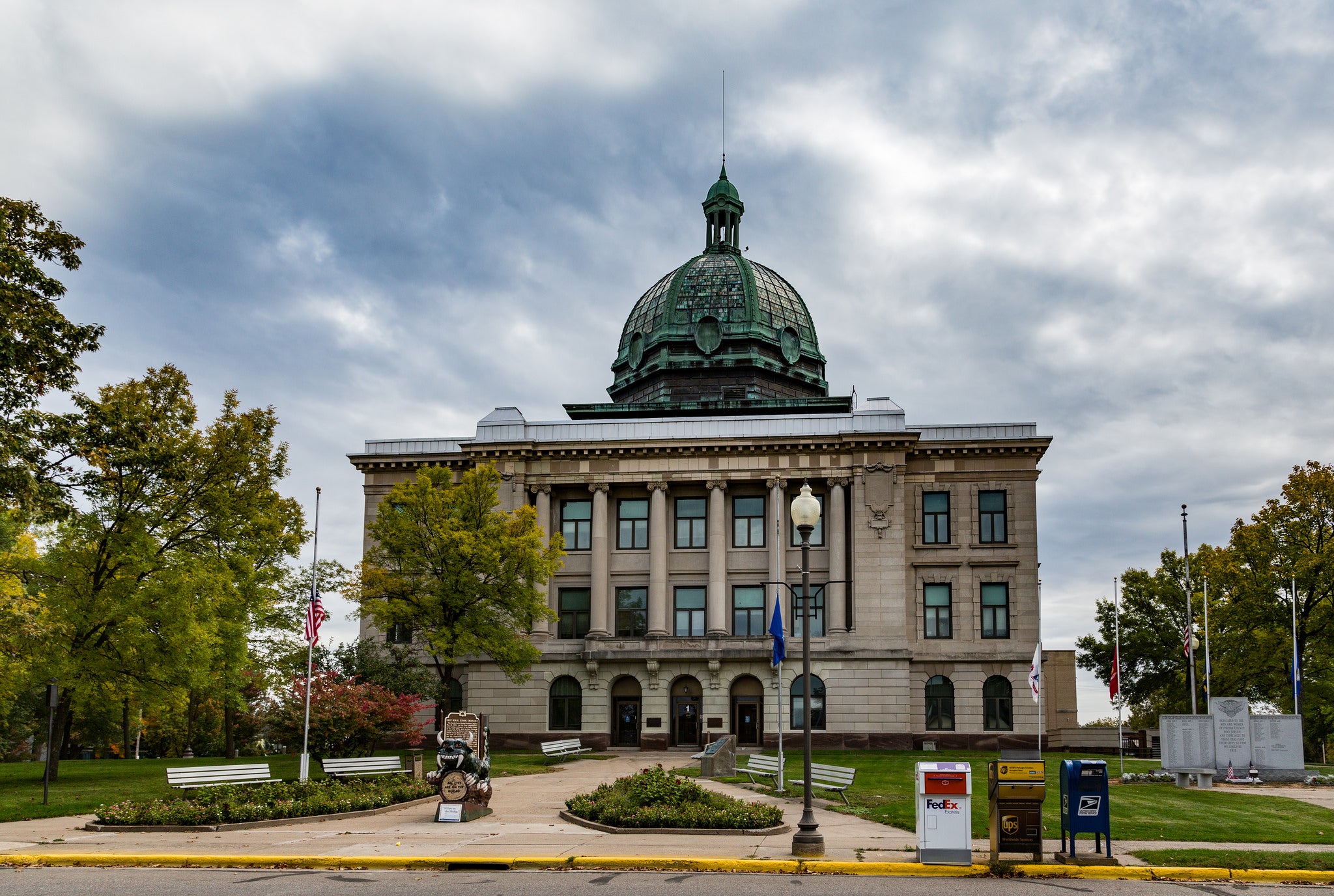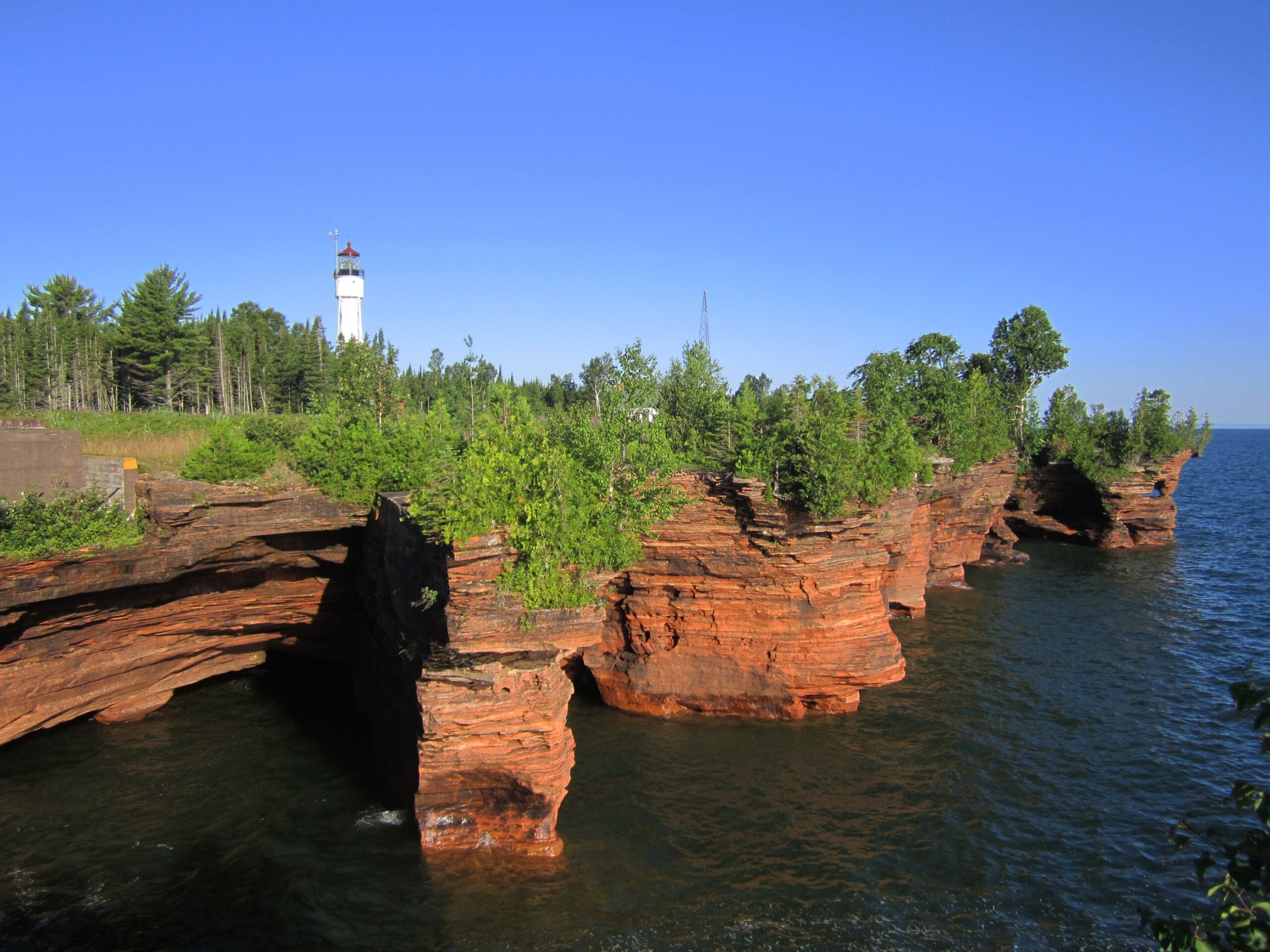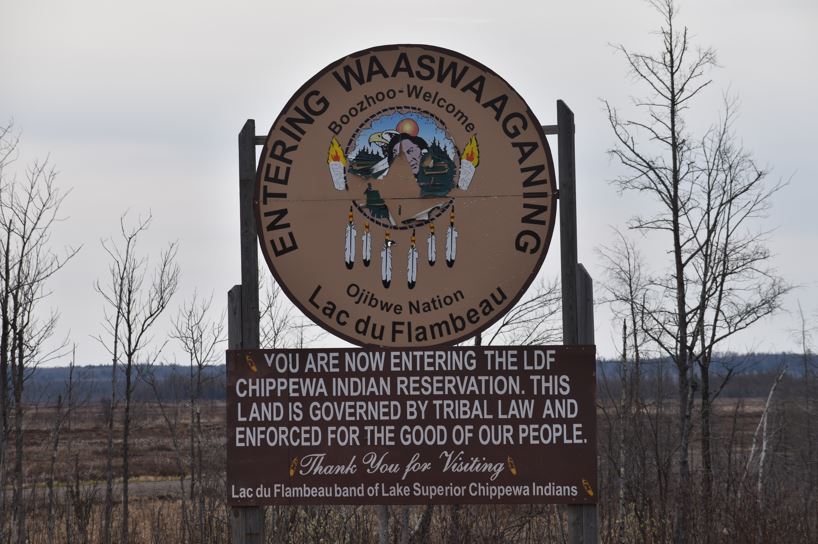One northern Wisconsin lawmaker would like to repeal the state’s mining moratorium law. Sen. Tom Tiffany, R-Hazelhurst, said he expects to introduce a bill this session.
The mining moratorium law was passed with bipartisan support and signed into law by Gov. Tommy Thompson in 1998. It requires companies to prove a sulfide mine can run for 10 years and be closed for 10 years without polluting groundwater and surface waters from acid drainage.
Sen. Tiffany said the Flambeau copper mine near Ladysmith is an example that a sulfide mine can operate safely.
Stay informed on the latest news
Sign up for WPR’s email newsletter.
“The Flambeau mine wasn’t open for 10 years, but it was run successfully. But, what I hear from constituents is the main thing they’re concerned about is … they want to make sure there is not environmental degradation in the future,” Tiffany said. “The Flambeau mine clearly has met that standard. As a result, I think the law has largely become moot at this point.”
Sen. Janet Bewley, D-Delta, argued the law should remain intact and considered any forthcoming legislation a distraction from the upcoming budget deliberations.
“We have to take it seriously. We have to respond with as much integrity and organization as we can to make sure that a repeal does not happen,” she said. “But, at the same time, we cannot become tricked into taking our eyes off of what is happening right now for real, which is the budget.”
Bewley added she’s unaware of any interest in mining sulfide metals or nonferrous minerals, such as copper, nickel or zinc.
Wisconsin has a handful of mineral deposits in the northern part of the state, according to the Wisconsin Department of Natural Resources. Mining company Gogebic Taconite explored the Gogebic Deposit in Ashland and Iron counties before abandoning plans for a $1.5 billion iron ore mine in 2015.
Aquila Resources, which is seeking permits for the Michigan Back 40 mine, obtained a license to do exploratory drilling in the Bend Copper-Gold Deposit in the Chequamegon-Nicolet National Forest several years ago.
In 2009, mining company Tamerlane Ventures petitioned Oneida County to open up forest land for potential exploration and mining. The Reef Deposit in Marathon County was also explored for its gold reserves in 2011. Only the Crandon Deposit in Forest County, which was purchased by tribes in 2003, has seen all exploration activity cease.
On Monday, Tiffany said no companies have come to him with mining proposals for specific deposits.
“I believe we should have the proper permitting processes in place to be able to handle things like this,” he said. “We have a very strong sulfide mining law here in the state of Wisconsin. We should use it.”
Lucas Vebber, director of energy and environmental policy for Wisconsin Manufacturers and Commerce, said a repeal of the state’s mining moratorium law has been on their legislative agenda for a couple years.
“Anytime that you’re banning essentially an entire industry from our state – not even really giving them the chance to come in and get a permit – is not something we would support,” he said. “We’d certainly just like them to stop saying no to metallic mining jobs in Wisconsin.”
Vebber also pointed to the Flambeau mine as an example of a mining operation that has been safely operated and reclaimed.
“The legacy that’s up there is one of environmental stewardship,” Vebber said. “I think anybody who’s gone to Ladysmith to take a look at that old mine site would agree with that statement. We’d like to try to bring those kind of good actors – those good companies back to Wisconsin.”
Environmentalists brought a lawsuit against Flambeau Mining Co. several years ago for polluting a small stream near the mine site. Federal Judge Barbara Crabb ruled the company violated the Clean Water Act.
“The court case against the Flambeau mine demonstrated that the mine did cause pollution. That’s without dispute from anyone,” said Dave Blouin, state mining committee chair with the John Muir Chapter of the Sierra Club.
However, Crabb also noted discharges into the stream were small. Even so, Blouin contends the mine itself was only a small 35-acre open pit. He said he finds it strange Tiffany believes the mining moratorium law should be repealed.
“During his defense of the taconite mining law, he held up the fact that they were exempting taconite mining from the mining moratorium law because metallic mining wasn’t metallic sulfide mining,” he said. “In other words, it was a much safer kind of mining.”
The iron mining law, sponsored by Tiffany, does distinguish between iron mining and nonferrous mining, noting iron mining doesn’t require the stringent standards necessary for nonferrous minerals that can cause acid mine drainage.
Tiffany also drew a distinction in a video update to constituents on proposed iron mining legislation in 2013.
“Current mining law encompasses all types of mining and all types of minerals, and we believe ferrous mining or iron mining deserves a separate statute,” he said in a 2013 post on his YouTube channel. “It uses a different process and uses a mechanical means so it takes one of the risk factors out so we thought it warranted putting that in statute.”
When asked Monday if he was changing his position on sulfide mining, Tiffany said he didn’t “view it that way.”
Larry Lynch, state metallic mining coordinator for the Wisconsin Department of Natural Resources, said not all nonferrous mines are sulfide mines. But, he said the geology of mineral deposits in northern Wisconsin makes that unlikely.
“It’s likely that any nonferrous mine we have would be a sulfide mine,” said Lynch.
Lynch said the nonferrous mining law is fairly broad.
“There have been some very minor changes, but the general framework, the permitting criteria, the decision-making criteria remain essentially the same as they were in 1978,” Lynch said. “Are they good enough? That’s an issue I suppose people could debate.”
But, he added that nothing in the mining law changes permitting for other programs.
“So if you had a nonferrous mine, they’ll still have to go through the normal, for instance, wastewater discharge permitting process and those criteria apply,” he said.
Sen. Tiffany said he didn’t anticipate any changes to state standards within sulfide mining law if the moratorium were repealed. In 2013, Gogebic Taconite played a role in drafting changes to the state’s iron mining law, relaxing environmental protections.
“We’ll have to review processes and things like that to make sure that there’s none that are unnecessarily long,” he said of the state’s sulfide mining law. “But, otherwise, I’m satisfied generally speaking with the numeric standards we have in place currently in Wisconsin. They’re tough. They’re rigorous, and they are appropriate.”
Vebber said there’s not going to be “a mad rush to open mines” if the legislation is introduced and passed by lawmakers. But, he said it’s an opportunity to grow jobs in the future.
“If you’re going to open a mine, you’re going to need to buy heavy equipment for that mine. You need to buy goods and services from companies that are located throughout our state,” Vebber said. “We’ve got manufacturers and service companies right here in Wisconsin who are ready, willing and able to jump in there and start employing people.”
Editor’s note: This story has been updated with information from the Wisconsin Department of Natural Resources on nonferrous mining.
Wisconsin Public Radio, © Copyright 2025, Board of Regents of the University of Wisconsin System and Wisconsin Educational Communications Board.



